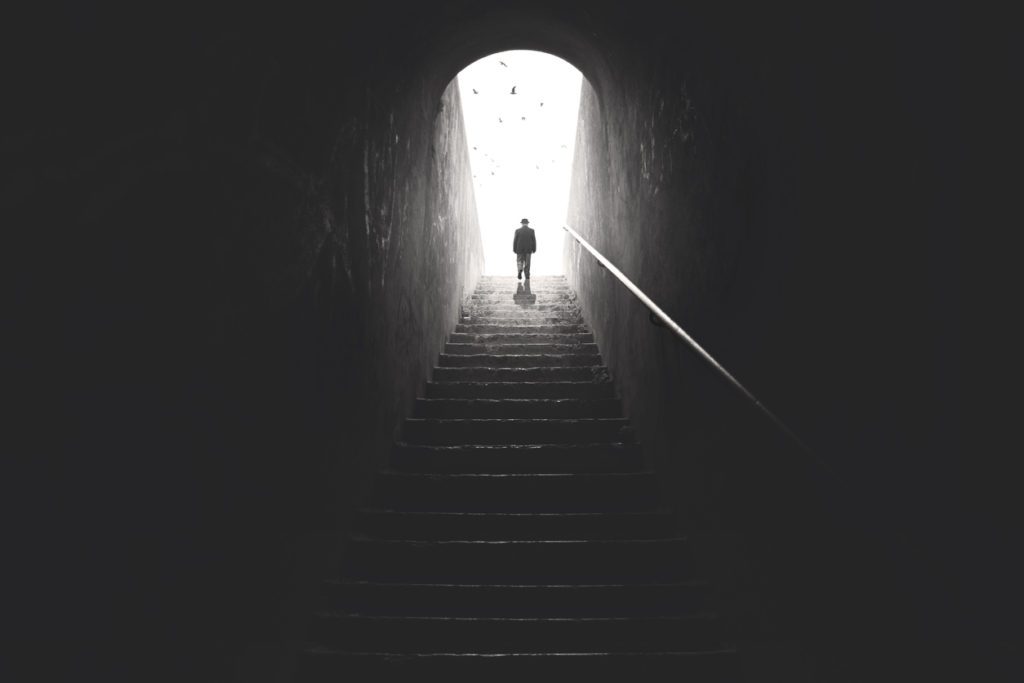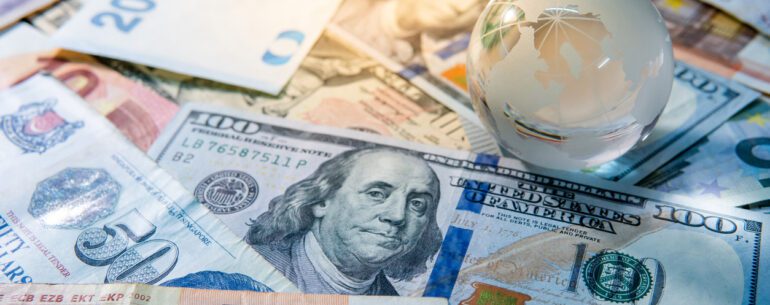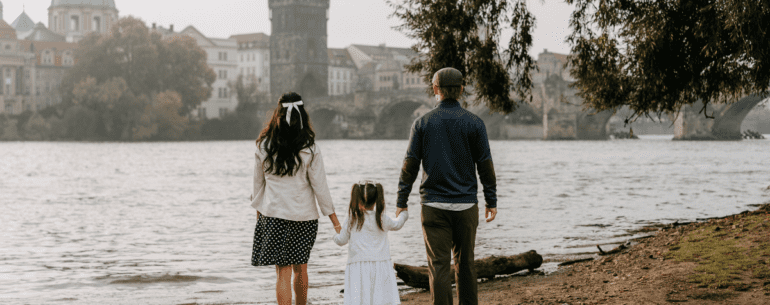1991-1994 were the toughest and most impactful years of my life.
Late at night on March 25, 1991, my friend’s dad was driving his family home from our basketball game in New Orleans. A speeding drunk-driver ran a stop-sign and crashed into their Astro van.
My family was a few minutes behind, traveling the same route. We got out to see if everyone was ok.
I found my friend sitting with his head down, faced away from where paramedics were attending to his dad. I stood by him as adults tried to get information. He never once picked his head up.
My friend would say only that he would not go to his dad’s funeral. He knew how bad the crash had been because he was in the back seat when his dad was ejected through the windshield,
Mr. Keith, 37, was pronounced dead the next morning.
A Man Among Boys
We had a game at 11am that morning. Our best player didn’t play—he’d lost his dad hours earlier.
After the game, I walked straight to my dad and hugged him; many of us were crying. Dealing with death was weighty stuff for a tight-knit group of 10-year olds.
My friend didn’t talk as much after losing his father. I figured he was thinking and praying a lot. We were Catholic, so I trusted God didn’t put people in circumstances they couldn’t handle. My friend was literally the strongest, most mature 10-year old in town, so it sort of made sense to my 10-year old brain.
Many nights I laid in bed wondering how my friend could go to sleep knowing his dad wasn’t there. Worse yet, how awful it must’ve been to wake up, and after a second realize it wasn’t all a terrible nightmare.
I had observed my friend and teammate a lot even before the accident because I wanted to be as good as him. He was a man among boys on the basketball court ala LeBron James at St. Vincent – St. Mary.
After the accident, I found new reasons to admire him. He channeled negative emotion into becoming an even better basketball player, committing himself to something larger than himself (our team). His strength and resilience were like nothing I’d ever seen.
My Own Hardship
Later that same year, November 7, 1991, my dad came home from work with red eyes like he’d been crying. He said to my brother and me, “C’mon, sit down, I need to talk to you guys.” I could feel my throat begin to well-up.
The date is etched in my memory because Magic Johnson announced earlier that night that he had HIV, and was retiring from basketball.
I don’t have a more vivid memory from childhood than the moment after we sat down, and before my dad started talking. He was sitting on the floor with his arms crossed. I could tell whatever he was going to say wasn’t easy for him. Then he said that he was leaving.
A Troubled Youth
My spirit was crushed after my dad left. Mom was emotionally and psychologically unwell.
Grownups had always said that I was a clone of my dad; it was something we both liked hearing. But after he left, being a clone made me feel like the scapegoat by proxy.
My grades tanked. I broke my left hand punching a sheetrock wall. And twice I was in fights that got me suspended from school.
My First School Suspension
In How to Pass a Shit Test, I write, “Men begin shit-testing each other as boys playing in the schoolyard…Whether a young boy feels bullied or challenged when shit-tested by other kids will largely determine whether or not testing continues.”
In my case, the kid had a reputation for bullying his classmates. His language toward me sounded like he was trying to bully me, which surprised me—he was younger (and shorter) than me.
When he lightly pushed me and laughed, I told him not to put his hands on me—something I’d always heard my dad tell my brother [about me].
…”usually a shit-test is only that—a test. It rarely results in physical aggression. A bully is highly insecure. He wants to cement his or her own place in the social hierarchy with little effort, which is why bullies usually back down when confronted.”
Once a crowd gathered, I could tell the kid felt emboldened and wasn’t backing down. Testing continued. He punched my chest and said, “What are you gonna do?”
What I did was unleash every bit of pent-up rage I had within me. For that brief moment in time, the kid represented all that had gone to hell at home.
The kid’s family said he needed facial reconstructive surgery and tried to sue. But “witnesses” corroborated my story that I acted in self-defense.
Losing Emotional Control
I wasn’t upset that I was suspended from school, and I didn’t feel sorry for the kid (several parents thanked me, said he’d bullied their kid for years). I was upset with myself for loss of emotional control.
I knew how destructive and debilitating negative emotion could be because I’d witnessed it in my own family. Toxic people are self-absorbed. They suck the joy out of a room, then try to provoke you. They delight in entangling others in their endless dramas.
At its most debilitating, negative emotion is like a parasite living inside someone, feeding on their energy levels until it consumes them. They sink deeper into themselves over time, worrying constantly what others think of them. If they’re not receiving enough attention, they will try to manipulate you into feeling guilty. “Misery loves company” didn’t become a proverb in… isolation.
The New Kid in School
Less than six months later, one of the nuns at school interrupted class to speak with me privately. It had been decided that I was going to be taken out of school.
I went from a small Catholic school, to a giant new school in another state. It was “culture-shock.” The school was mostly self-segregated; I was a minority. Being in a new environment made me hyper-aware of my surroundings.
Students called teachers, “Miss,” and each other, “Dogg” (I assumed because Snoop Dogg’s Doggystyle was released a few months earlier). When I mentioned that I owned the Snoop Dogg CD, kids thought it was hilarious that a “prep” owned a rap CD. Nearly everyone wore basketball jerseys to school, even the “cool kids.”
I started a business buying boxes of basketball cards for $40, then took individually-wrapped packs (36 in a box) to school, selling them for $2/pack.
My Second School Suspension
A few Hispanic kids, rumored to be Latin Kings, didn’t like that I was making big money at school. These supposed gang members called me: “that new prep” and “that white boy with the cards.”
A girl on my bus said, “You better watch out. One of my homeboys said you gonna get ‘jumped.'” I started keeping very little money on me. At night, I would lift weights and practice fighting more than one person.
One day somebody broke into my locker during basketball practice and stole my cash. I was livid. But I was so new at school that I didn’t have friends or allies. So in the locker room that afternoon, I held up a twenty-dollar bill like it was “Samantha Baker’s” underpants [Sixteen Candles]. I said that anyone who could tell me who broke into my locker would get $20.
A small Latino kid approached me at the bus stop and said, “What’s up, Dogg. I know who got your money. But if I tell you, you can’t tell no fuckin’ body [that he outed the culprit]…he’s my homeboy, Dogg…I don’t wan’t no trouble with him.” I assured him I wouldn’t tell anyone.
While I considered how much my life had changed since my last fight (I thought it was used, at least in part, as an excuse to kick me out of the house), I knew the only way I was going to get my money back was to scrap for it. It wasn’t like I could report the theft—my basketball-card business didn’t comport with school rules.
The kid taunted me when I approached him, so I hit him under the nose. He looked startled, like he wasn’t expecting me to be left-handed. I demanded that he give my money back. Instead, he took two steps toward me. So I took two steps back, to let him think I was scared, then kicked him in the throat.
We wrestled on the ground until a guy pulled me off of him. The guy looked like he could’ve been somebody’s dad, though at my school, that wasn’t saying much—there were two 16-year olds on the eighth-grade basketball team. As I was held back, I yelled, “Somebody check his bag! Check his fucking bag!”
The man said, “Watch your mouth, Son! Who are you, anyway?”
I said, “Who are you?” He said, “I’m ___________, Vice Principal. Come with me.” That was my second suspension.
It’s Not Your Fault
My second suspension was an “in-school suspension,” so I was able to keep it to myself. It was worse than being home. It felt like solitary confinement with schoolwork.
I went from having an idyllic childhood, which I didn’t realize until it was gone, to a tougher life. Facing daily fears and struggles hardened me like steel. Luckily, I changed schools again; otherwise, I’d probably be living with a “Thug Life” tattoo across my stomach.
I dismissed people who genuinely tried to help me, often for shallow reasons. I thought the psychiatrist I visited was a fruit loop. (The movie Good Will Hunting has always hit too close to home—one scene in particular.)
I thought about my friend back home a lot. He’d exemplified how to deal with emotional and psychological pain. Like him, I turned inward and quiet. I got comfortable being alone and spent a lot of time in my own head.
Developing an Inner-Life
Through inner-work and prayer, I came to understand that good things happen, followed by bad things, and that everything can change in an instant. I learned to let go of the past, and embrace uncertainty and chaos.
It’s when your world is flipped upside down that inner-work is most required. To use a real estate metaphor, digging deep is how you build a solid foundation so that emotional “storms” don’t overwhelm you. The aim is to build a solid structure that can withstand “hurricane-force winds.”
Those protected from emotional pain never grow up. They don’t do inner-work; instead, they learn to escape pain through drugs and/or distraction. By avoiding challenges that portend personal growth, they never discover what they’re capable of. They’re left with a surface-level foundation. But a foundation without depth can barely withstand a breeze.
An Emotional Journey
I was done with being a kid after what I’d been through. The pain felt overwhelming at times, like four walls closing in and nobody could hear me screaming.
Through despair, I gained greater knowledge of the world, of human behavior, and of myself. I learned that life is single-player; that most people are self-interested and cannot be fully relied upon. This knowledge didn’t make me cynical—I know joy because I know its opposite. I cherish relationships because I know how it feels to be abandoned.
Once you’ve endured the depths of a dark place, you emerge resilient. Nothing could hurt me as much as what I experienced in those years.
Reflection made crystal-clear what was out of my control or unimportant. This clarity allowed me to cultivate indifference to what was inconsequential. For the longest, I didn’t understand why people couldn’t get over the most trivial of hurts; why they couldn’t see most stress as self-inflicted. Many of the dots I didn’t connect until later.
Developing self-control became a means of overcoming unwanted emotion. I started paying more attention to my inner voice rather than that of others. I developed Stoic principles before I knew Stoicism was an ancient philosophy.
Eventually, I became unafraid. The unpredictability of the future would never scare me again. Feelings of helplessness became a conduit to fearlessness.
To those human beings who are of any concern to me I wish suffering, desolation, sickness, ill-treatment, indignities — I wish that they should not remain unfamiliar with profound self-contempt, the torture of self-mistrust, the wretchedness of the vanquished: I have no pity for them, because I wish them the only thing that can prove today whether one is worth anything or not — that one endures. – Friedrich Nietzsche

Wall of Gratitude (1991-1994)
To those of you who had a big impact on me during those years, thank you:
Mr. Tom Abadie – best coach I ever had. Taught me the values of discipline, preparation and teamwork.
Mrs. Phyllis Bilello – like a second mom to me. Picked me up on a bad night to take me to her house. When she saw that I was unwell, pulled over and got in backseat with me.
Mr. Mark Kearns – a friend’s dad, who was a friend when I needed it most. Wrote me a letter I still have, saying there was something special about me and that I was going to make a difference in the world.
Mr. Brent McDonald – always believed in me, from our first conversation about whether track & field stories about me were true. Thanks to his influence, I was in the starting lineup after that first discussion (wasn’t playing before). When I graduated, “Mac” called everyone he knew trying to help me get a baseball scholarship.
Clint Adams – without your example, my life turns out differently.




This is such a great blog. The wall of gratitude is really sweet. It’s interesting to me when people comment on the fact that they believe that childhood has nothing to do with the way a person is ultimately shaped. I can recall, similar to you, every little tiny detail of trivial events that have shaped me for the better or worse from my childhood! Always working on the “worse” part! Haha! Thank you for this blog!
Thank you! I’m with you. Can’t ever tell if people don’t remember details from childhood because they think it’s not important, or the reverse.
I just want to give you a big hug. Love the wall of gratitude. I can’t remember the year we became friends, i did always know you had a heart of gold.
I often think about the people who’ve shaped me from youth to present. It’s interesting the mark some people leave on your heart and mind.
Thanks for sharing your life.
Thank you, Alison. We met in ‘94!
Intended to have a Wall of Gratitude when I started the blog. Only now getting around to it.
I’ve gone full 180 on sharing life. Heard it gets easier after sharing all your family’s problems. 😂
Good one! This one was a page turner. I’ve never heard of “Kintsugi” but I definitely know that the obstacle is the way and that on the other side of pain is growth. I’m glad the skinny kid in the bright yellow shirt at club shelter caught your eye. At least I wasn’t wearing a basketball jersey. 🤣. So something to ponder that you will have to figure out once you have kids is, how do you develop those traits of resilience, stoicism, etc in a child without putting them through hardships and extreme pain? How does little Champ, who’s life is pretty awesome learn the things you have learned? Will his upbringing be a disadvantage?
Hahaha when the fog cleared at Shelter (I can still smell it), and I saw you getting after it, I knew the 4 yrs ahead were gonna be alright alright.
Love your questions – they’re deep.
I agree Champ has it pretty awesome – so did we at that age. “If you would not have a man flinch when the crisis comes, train him before it comes.” No way Champ’s upbringing will be a disadvantage; at least, not any more than Peyton Manning’s was disadvantaged, or Drew Brees’ kids will be disadvantagedd – I’m sure you saw the game where he broke the passing record and was asked what he told his kids.
Brees said, “I told them same thing I tell them every night…that I love ’em, and that they can have anything in this life they’re willing to work hard for.”
I’d take what you’re equipping Champ with less extreme pain all day. But as I mentioned on Solopreneur Grind podcast, most of what I learned came from unexpected hardship, when I felt like I *had* to figure things out. Neuronal pathways were still created when I was younger – a latticework of mental models influenced by coaches, positive influences, thinking, etc. All of it contributed to shaping someone determined to dig deep within.
My parents got bad end of deal in this blog post, but they played a huge role in shaping what eventually became resilience & stoicism. They’re who got me involved in organized sports, drove me to practice and church on Sunday, paid extra $ to send me to Catholic school.
My teammate in blog article, and I, both had idyllic childhoods first decade of our lives. But the future is uncertain. I think we must prepare ours sons to be the rock of the family should a drunk-driver take Dad out one day. We’d want him to take the lead in funeral arrangements if needed; give the sort of eulogy we’d be looking down with St. Pete and say, “That’s my boy! He’s a man now.” But none of this is easy. I’ve thought about it, of course, but don’t believe I’ll start figuring it out once I have kids. Because much of it is “feel” (stole that from you).
Ecclesiastes: “He that increaseth knowledge, increaseth sorrow.” Arm a kid with too much of this stuff, too soon, and you take away the happy innocence of a child.
My belief that wisdom is derived from pain is reinforced by how little wisdom there is nowadays. Ask your average college grad if he’s gained any wisdom, he’ll say, “What do you mean?” The problem isn’t that it’s not valued; they don’t even know what it is. There’s a lack of depth from being coddled and protected from emotional pain. Too much fem influence, not enough dad influence. Combo is best. Otherwise, conflation of masc/fem, macro/micro; confused child, triggered by northwest breeze. You’ve dealt with the privileged and entitled more than me, am I on the right track?
There’s as much good stuff in these comments as there is in the main text, probably more. It’s a continuation further, deeper, wider.
When I read Chase’s question, Tommy and Mike Caldwell immediately sprang to mind. If you haven’t seen Dawn Wall yet (Netflix), I’m tempted to say “drop whatever you’re doing and watch it”. I remember when Tommy was in the news years ago, but I never knew anything about him. OMG. He said he always knew his dad loved him, but also knew he didn’t hesitate to allow him to suffer. It made him who and what he is.
Thanks you, David, you’re helping (the comments section)!
Always looking for something good to read or watch. When a person whose judgment I trust recommends something, I move it to the top of the list. So consider it watched! Thanks for the suggestion.
Your recollection of those years and moments so many years ago is impressive. But what’s even more impressive is the mental maturity you had then. To have the understanding and discipline to follow through with goals, aspirations, etc during your adolescence and formative years is very unique. To use a metaphor, you “mapquested” your life. Have you made some wrong turns or exited too early, sure. But you had the wherewithal to get back on the route you intended. Your podcast had me thinking about my life and the clarity just isn’t there. I know the feelings and emotions I had, those are what stuck. I often think about the future but digging into the past can reveal so much. There is a lot to be learned. I’m sure it’s harder when there is a lot of pain or even shame in what was. I’m starting to understand why Howard Stern says therapy is the greatest thing people can do for themselves
Thanks, Matt. “The unexamined life is not worth living” is something I mentioned on podcast too. Easier to look back if one can compartmentalize i.e. think about it for 10 mins/day, and that’s it. Haven’t been to therapy as an adult, but close friends + journaling (poor man’s therapy) have probably served same function for me. Perhaps not as good, but better than a fruit loop. 😂 Thanks for your comments.